
Reissuing clarinetist Jimmy Giuffre's 1963 Columbia album Free Fall, presenting trio performances with bassist Steve Swallow and pianist Paul Bley recorded after their 1961 European tour, along with duos between Giuffre and Swallow and several solo tracks from the clarinetist himself, propelling himself and his band into his sophisticated, risk-taking chamber jazz compositions.
In Stock
Quantity in Basket: None
Log In to use our Wish List
Shipping Weight: 3.00 units
EU & UK Customers:
Discogs.com can handle your VAT payments
So please order through Discogs
Sample The Album:
Jimmy Giuffre-clarinet
Paul Bley-piano
Steve Swallow-double bass
Click an artist name above to see in-stock items for that artist.
UPC: 752156111924
Label: ezz-thetics by Hat Hut Records Ltd
Catalog ID: ezz-thetics 1119
Squidco Product Code: 30427
Format: CD
Condition: Sale (New)
Released: 2021
Country: Switzerland
Packaging: Cardboard Gatefold
Recorded in New York, New York, on July 9th, October 10th, and November 1st, 1962. Free Fall originally issued on vinyl LP on the Columbia label in 1963 as catalog code CL 1964.
"It is common knowledge that the term "free fall" refers to the interval between a person jumping out of an airplane at a considerable height and the time when their parachute opens to slow their descent to earth safely. Referring to Newtonian physics, it takes place when gravity is the only external force affecting a body in motion.
Free Fall was the third studio album that featured the trio of Jimmy Giuffre on clarinet, pianist Paul Bley, and Steve Swallow on acoustic bass. The previous two albums, Fusion and Thesis, recorded in March and August of 1961 respectively, had initiated their adventurous exploration of small group interaction and formal reorganization, by substituting three-part contrapuntal layering and flexible rhythmic and tempo phrasing for the conventional chord-based, synchronized structures of song-form jazz. Shortly thereafter, in October and November of that year, the trio embarked on a European tour, including concerts in Stuttgart, Bremen, and Graz - all fortunately documented on disc (the first two currently on Emanem, the latter on Hat Hut's ezz-thetics). In these live settings, they were able to extend and redefine their earlier repertoire with ever-more spontaneous and abstracted contributions, leading them to the precipice of complete improvisational freedom. The leap came in this album, from their next studio sessions of July, October, and November 1962.
Giuffre has written that the duo and trio pieces here all followed the same pattern, that is, starting with a written (composed) section, opening up into freely improvised episodes, and ending with a return to the initial idea. The extent to which the musicians related their intuitive statements and responses to the given material or the actions of their counterparts - or ignored them - defined the formal nature of the ensemble. And while these performances were prophetic examples of small group free relativity - distinct from Ornette Coleman's already established free jazz subjectivity - their precedents can be traced through the trio's own gradual evolution.
What I feel to be the more revealing and revolutionary aspects of this album, then, are to be found in the five unaccompanied clarinet pieces. These are each "completely improvised," in Giuffre's words, and though not totally unprecedented, were likely the product of a fascinating, if circuitous and varied, sequence of influences. Without the support or consequence of assisting musicians, Giuffre's soliloquies were responsible, in the moment of creation, for their own drama, lyricism, and form - their own survival. So when Giuffre titled this album Free Fall, he was acknowledging not merely the risk involved in such an unprotected endeavor, but also the lack of resistance - or outside pressures - upon the movement of his musical lines in space. The sole creative force projected was the gravitational pull of his own melodic statements (a metaphor which Anthony Braxton has used to describe the "weight" and impact of intervals and the shape of phrases in a melodic contour).
Although pre-dating the better-known solo reed performances of Braxton, Steve Lacy, Peter Brötzmann, and others which commenced later in the decade, these were not the first unaccompanied clarinet pieces to be recorded in a "jazz" environment. The remarkable, indefatigably curious Tony Scott had presented his quirky, chromatic "Three Short Dances for Solo Clarinet" on an otherwise "swinging" RCA album in 1955, under the aegis of composer Stefan Wolpe, with whom he began studies in 1950. In fact, Giuffre himself had offered "So Low," a solo foot-tapping blues, on his 1956 album The Jimmy Giuffre Clarinet, and included unaccompanied clarinet vignettes in his 1959 clarinet-with-string-orchestra "Mobiles."
By this time, Giuffre's attraction to classical music was already well-documented and had been entangled in his music beyond even "Mobiles" and its discmate, "Piece for Clarinet and String Orchestra." But the unaccompanied improvisations on Free Fall are part of a longer legacy, beginning with Igor Stravinsky's capricious 1919 "Trois Pieces," which conceptually gave composers as stylistically diverse as Alan Hovhaness, Olivier Messiaen, John Cage, and Ernst Krenek, among others, subsequent license to allow the clarinet to sing on its own (that is, without the conventional benefit of piano or additional instrumental accompaniment). Given Giuffre's broad interests and study with Wesley La Violette, he no doubt was familiar with some if not all of these solo works - but there are two composers closer to home that Giuffre could not have ignored. In 1959, William O. (Bill) Smith, a one-time student of Darius Milhaud at Mills College and a member of Dave Brubeck's late-'50s/early-'60s combo, composed "Five Pieces for Clarinet Alone." And composer Donald Martino, a devoted dodecaphonist and jazz clarinetist as a student, created what is probably the most performed recital piece for the instrument since 1954, "A Set for Clarinet." Another link in the chain was that Martino was Steve Swallow's teacher at Yale, suggesting conversations between Swallow and Giuffre on Martino's music.
It was no coincidence that the first piece recorded at the July 1962 session was "Propulsion." Though improvised, Giuffre's unaccompanied leaps into open space were encouraged, if not motivated, by his sensitivity to and familiarity with the modern classical idioms. The freedom with which he expanded the jazz harmonic/melodic vocabulary and negotiated a provocative lyrical/dramatic formal tension required a free fall. His parachute was his imagination."-Art Lange, Chicago May 2021
Artist Biographies
• Show Bio for Jimmy Giuffre "James Peter "Jimmy" Giuffre; April 26, 1921 Ð April 24, 2008) was an American jazz clarinetist, saxophonist, composer, and arranger. He is notable for his development of forms of jazz which allowed for free interplay between the musicians, anticipating forms of free improvisation. Born in Dallas, Texas, Giuffre was a graduate of Dallas Technical High School and North Texas State Teachers College (University of North Texas College of Music). He first became known as an arranger for Woody Herman's big band, for which he wrote "Four Brothers" (1947). He would continue to write creative, unusual arrangements throughout his career. He was a central figure in West Coast jazz and cool jazz. He became a member of Howard Rumsey's Lighthouse All Stars in 1951 as a full-time All Star along with Shorty Rogers and Shelly Manne. The Lighthouse in Hermosa Beach, California became the focal point of West Coast jazz in the 1952/1953 time period. It was during this time when he collaborated with Rogers on many of the successful charts written for the All Stars. The first recording released by the Lighthouse All Stars was a not so West Coast jazz chart named "Big Boy" which he and Rogers had put together. It was an instant hit in Los Angeles. He left the band in September 1953 and became a member of Shorty Rogers and His Giants before going solo. At this point in his career, Giuffre predominantly played tenor and baritone saxophone. His first trio consisted of Giuffre, guitarist Jim Hall and double bassist Ralph Pe–a (later replaced by Jim Atlas). They had a minor hit in 1957 when Giuffre's "The Train and the River" was featured on the television special The Sound of Jazz. This trio explored what Giuffre dubbed "blues-based folk jazz". This same special matched Giuffre with fellow clarinetist Pee Wee Russell for a leisurely jam session simply titled "Blues". When Atlas left the trio, Giuffre replaced him with valve trombonist Bob Brookmeyer. This unusual instrumentation was partly inspired by Aaron Copland. The group can be seen performing "The Train and the River" in the film Jazz on a Summer's Day filmed at the 1958 Newport Jazz Festival. In 1959, Giuffre led a trio featuring Hall and bassist Buddy Clark on a concert in Rome, Italy, sharing the bill with Gerry Mulligan's band. In 1961, Giuffre formed a new trio with piano player Paul Bley and Steve Swallow on double bass, and also began to focus his attention largely on the clarinet. This group received little attention while active, but were later cited by some critics, fans and musicians as among the most important groups in jazz history. They explored free jazz not in the loud, aggressive mode of Albert Ayler or Archie Shepp, but with a hushed, quiet focus more resembling chamber music. The trio's explorations of melody, harmony and rhythm are still as striking and radical as any in jazz. Thom Jurek has written that this trio's recordings are "one of the most essential documents regarding the other side of early-'60s jazz." Giuffre, Bley and Swallow eventually explored wholly improvised music, several years ahead of the free improvisation boom in Europe. Jurek writes that Free Fall, their final record, "was such radical music, no one, literally no one, was ready for it and the group disbanded shortly thereafter on a night when they made only 35 cents apiece for a set." In the early 1970s, Giuffre formed a new trio with bassist Kiyoshi Tokunaga and drummer Randy Kaye. Giuffre added instruments including bass flute and soprano saxophone to his arsenal. A later group included Pete Levin playing synthesizer and replaced Tokunaga with electric bassist Bob Nieske. This group recorded three albums for the Italian Soul Note label. During the 1970s, Giuffre was hired by New York University to head its jazz ensemble, and to teach private lessons in saxophone and music composition. Into the 1990s, Giuffre continued teaching and performing. He recorded with Joe McPhee, and revived the trio with Bley and Swallow (though Swallow had switched to bass guitar, giving the group a different sound). Through the mid-1990s Giuffre taught at the New England Conservatory of Music. He suffered from Parkinson's Disease and in his last years he no longer performed. Giuffre died of pneumonia in Pittsfield, Massachusetts, on April 24, 2008, two days short of his 87th birthday." ^ Hide Bio for Jimmy Giuffre • Show Bio for Paul Bley "Hyman Paul Bley, CM (November 10, 1932 - January 3, 2016) was a Canadian pianist known for his contributions to the free jazz movement of the 1960s as well as his innovations and influence on trio playing and his early live performance on the Moog and Arp audio synthesizers. Bley was a long-time resident of the United States. His music has been described by Ben Ratliff of the New York Times as "deeply original and aesthetically aggressive." Bley's prolific output includes influential recordings from the 1950s through to his solo piano records of the 2000s. Bley was born in Montreal, Quebec, on November 10, 1932. His adoptive parents were Betty Marcovitch, an immigrant from Romania, and Joe Bley, owner of an embroidery factory. However, in 1993 a relative from the New York branch of the Bley family walked into Sweet Basil in NYC and informed him that his father was actually his biological parent. At age five Bley studied violin, but at age seven he decided to switch to the piano. By eleven he received a junior diploma from the McGill Conservatory in Montreal. At thirteen he formed a band which played at summer resorts in Ste. Agathe, Quebec. As a teenager he played with touring American bands, including Al Cowan's Tramp Band. In 1949, when Bley was starting his senior year of high school, Oscar Peterson asked Bley to fulfill his contract at the Alberta Lounge in Montreal. The next year Bley left Montreal for New York City and Julliard. In the 1951, on a return trip to Montreal, Bley organized the Jazz Workshop with a group of Montreal musicians. In 1953 Bley invited the bebop alto saxophonist and composer Charlie Parker to the Jazz Workshop, where he played and recorded with him. When Bley returned to New York City he hired Jackie McLean, Al Levitt and Doug Watkins to play an extended gig at the Copa City on Long Island. In 1953 the Shaw Agency booked Bley and his trio to tour with Lester Young, billed as "Lester Young and the Paul Bley Trio" in ads. He also performed with tenor saxophonist Ben Webster at that time. He then conducted for bassist Charles Mingus on the Charles Mingus and His Orchestra album. Additionally, in 1953, Mingus produced the Introducing Paul Bley album for his label, Debut Records with Mingus on bass and drummer Art Blakey . (In 1960 Bley recorded again with the Charles Mingus Group.) In 1954 Bley received a call from Chet Baker inviting him to play opposite Baker's quintet at Jazz City in Hollywood, California for the month of March. This was followed by a tour with singer Dakota Staton. Down Beat Magazine interviewed Bley for its July 13, 1955 issue. The prescient title of the article read, "PAUL BLEY, Jazz Is Just About Ready For Another Revolution." The article, reprinted in Down Beat's 50th Anniversary edition, quoted Bley as saying, "I'd like to write longer forms, I'd like to write music without a chordal center." Bley's trio with Hal Gaylor and Lennie McBrowne toured across the US in 1956, including a club in Juarez. Mexico. The tour culminated with an invitation to play a 1956 New Year's Eve gig at Lucile Ball and Desi Arnez's home in Palm Springs. During the evening, Bley collapsed on the bandstand with a bleeding ulcer and Lucy immediately took him to the Palm Springs hospital where she proceeded to pay for all of his medical care. Bley, who had met Karen Borg while she was working as a cigarette girl at Birdland in NYC, married her after she came out to meet him in Los Angeles, where she became Carla Bley. In 1957 Bley stayed in Los Angeles where he had the house band at the Hillcrest Club. By 1958 the original band, with vibe player, Dave Pike, evolved into a quintet with Bley hiring young avant garde musicians trumpet player Don Cherry, alto saxophonist Ornette Coleman, bassist Charlie Haden and drummer Billy Higgins. In the early 1960s Bley was part of "The Jimmy Giuffre 3," with Giuffre on reeds, and Steve Swallow on bass. Its repertoire included compositions by Giuffre, Bley and his now ex-wife, composer Carla Bley. The group's music moved towards chamber jazz and free jazz. The 1961 European tour of The Giuffre 3 shocked a public expecting Bebop, however the many recordings released from this tour have proven to be classics of free jazz. During the same period, Bley was touring and recording with tenor saxophonist Sonny Rollins, which culminated with the RCA Victor album Sonny Meets Hawk! with tenor saxophonist Coleman Hawkins. Bley's solo on "All The Things You Are" from this album has been called "the shot heard around the world" by Pat Metheny. In 1964 Bley was instrumental in the formation of the Jazz Composers Guild, a co-operative organization which brought together many free jazz musicians in New York: Roswell Rudd, Cecil Taylor, Archie Shepp, Carla Bley, Michael Mantler, Sun Ra, and others. The guild organized weekly concerts and created a forum for the "October Revolution" of 1964. In the late 1960s, Bley pioneered the use of the Arp and Moog synthesizers, performing live before an audience for the first time at Philharmonic Hall in New York City on December 26, 1969. This "Bley-Peacock Synthesizer Show" performance, a group with singer/composer Annette Peacock, who had written much of his personal repertoire since 1964, was followed by her playing on the recordings Dual Unity (credited to "Annette & Paul Bley") and Improvisie. The latter was a French release of two extended improvisational tracks with Bley on synthesizers, Peacock's voice and keyboards, and percussion by Dutch free jazz drummer Han Bennink, who had also appeared on part of Dual Unity. [biography continues...]" ^ Hide Bio for Paul Bley • Show Bio for Steve Swallow "Steve Swallow has long been many jazz critics' favorite electric bassist: rather than playing his instrument in a rock-oriented manner, Swallow emphasizes the high notes and, to an extent, approaches the electric bass as if it were a guitar. He originally started on piano and trumpet before settling on the acoustic bass as a teenager. Swallow joined the Paul Bley trio in 1960 and with Bley was part of an avant-garde version of the Jimmy Giuffre 3 during 1960-1962. Swallow recorded with George Russell and was a member of Art Farmer's quartet (1962-1965), Stan Getz's band (1965-1967), and an important edition of Gary Burton's quartet (1967-1970). The latter group (starting with the addition of guitarist Larry Coryell) was actually one of the first fusion groups, and it was during that time that Swallow began playing electric bass; within a few years, he stopped playing acoustic altogether. Swallow spent a few years in the early '70s living in northern California, during which time he mostly played locally. After the late '70s, he was closely associated with Carla Bley's groups, although he occasionally worked on other projects (including a reunion of the Jimmy Giuffre 3). Swallow has also proved to be a talented composer with "Eiderdown," "Falling Grace," "General Mojo's Well Laid Plan," and "Hotel Hello" among his better-known pieces. The 21st century saw the release of several Swallow sets, including Damaged in Transit (2003), Histoire Du Clochard: The Bum's Tale (2004), and an intriguing set with poet Robert Creeley, So There (2006). Hotel Hello appeared in 2007, followed by Believe in Spring, a collection of standards with Hans Ulrik and Jonas Johansen issued on the Stunt label, and Carla's Christmas Carols in 2008. In 2010, he recorded IS with trumpeter Tore Johanson for the Inner Ear label. Swallow formed We3 along with Adam Nussbaum and David Leibman; they recorded Amazing in 2011. In 2012, he and drummer Joey Barron played in Steve Kuhn's trio for the recording of Wisteria on ECM. It was a busy year for the bassist: he also recorded another duet offering, The Agnostic Chant Book, with reed and woodwind master Jonas Schoen. He led his own quintet for Into the Woodwork, which was issued on Xtra WATT, in June of 2013, and shared triple-billing with Carla Bley and Andy Sheppard on Trios, which was released in September of that year. In 2016, Swallow once again joined Bley and Sheppard for Andando el Tiempo." ^ Hide Bio for Steve Swallow
6/18/2025
Have a better biography or biography source? Please Contact Us so that we can update this biography.
6/18/2025
Have a better biography or biography source? Please Contact Us so that we can update this biography.
6/18/2025
Have a better biography or biography source? Please Contact Us so that we can update this biography.
Track Listing:
1. Motion Suspended 3:18
2. Propulsion 3:08
3. Threewe 4:14
4. Ornothoids 2:45
5. Dichotomy 4:00
6. Man Alone 2:20
7. Spasmodic 3:27
8. Yggdrasill 2:34
9. Divided Man 1:56
10. Primordial Call 2:19
11. The Five Ways 10:21
Hat Art
Improvised Music
Jazz
Free Improvisation
NY Downtown & Metropolitan Jazz/Improv
Solo Artist Recordings
Trio Recordings
Jazz Reissues
Staff Picks & Recommended Items
Top Sellers for 2021 by Customer Sales
Chamber Jazz
Jazz & Improvisation Based on Compositions
Hat Hut Masters Sale
Search for other titles on the label:
ezz-thetics by Hat Hut Records Ltd.


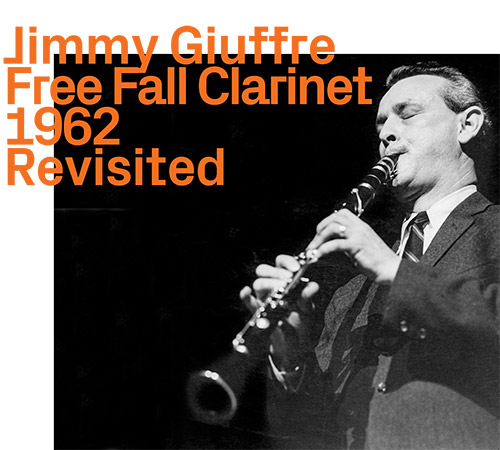
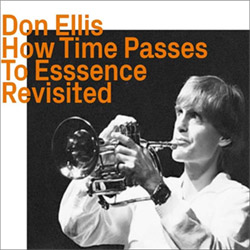
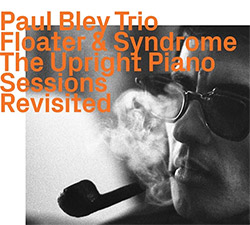
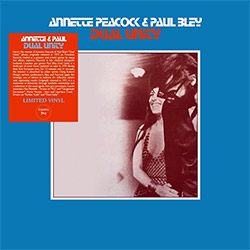



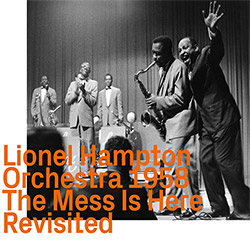
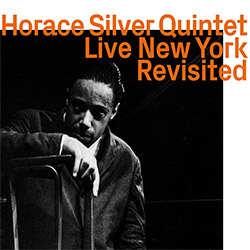
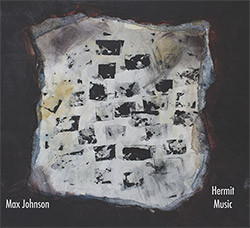
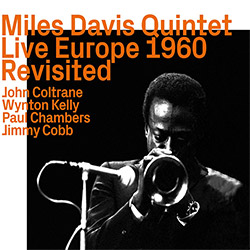

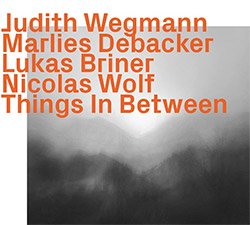
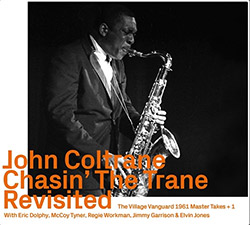
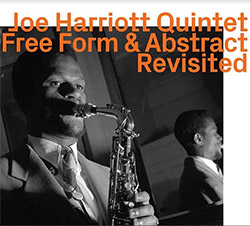
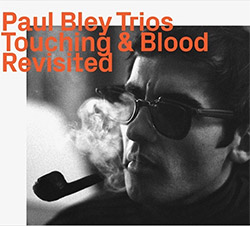
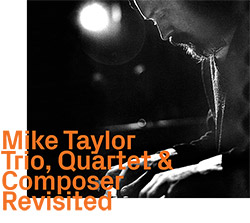



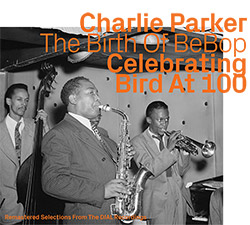
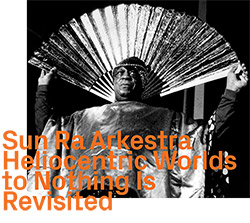
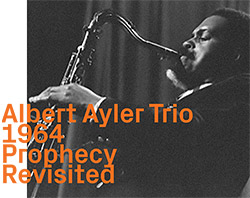


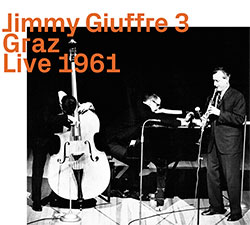
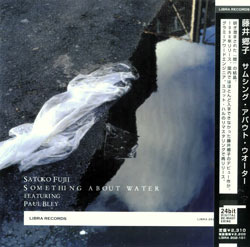




![BlueRing Improvisers: Materia [2 CDs]](https://www.teuthida.com/productImages/misc4/36513.jpg)








![Wheelhouse (Rempis / Adasiewicz / McBride): House And Home [VINYL]](https://www.teuthida.com/productImages/misc4/36462.jpg)
![+DOG+: The Light Of Our Lives [2 CDs]](https://www.teuthida.com/productImages/misc4/36009.jpg)


![Parker, Evan / Jean-Marc Foussat: Insolence [VINYL]](https://www.teuthida.com/productImages/misc4/36398.jpg)










![Deupree, Jerome / Sylvie Courvoisier / Lester St. Louis / Joe Morris: Canyon [2 CDs]](https://www.teuthida.com/productImages/misc4/36404.jpg)



![Eventless Plot | Haarvol: The Subliminal Paths [CASSETTE + DOWNLOAD]](https://www.teuthida.com/productImages/misc4/36232.jpg)










![Eventless Plot | Francesco Covarino: Methexis [CASSETTE + DOWNLOAD]](https://www.teuthida.com/productImages/misc4/36231.jpg)



![Das B (Mazen Kerbaj / Mike Majkowski / Magda Mayas / Tony Buck): Love [VINYL]](https://www.teuthida.com/productImages/misc4/36329.jpg)


![Eternities: Rides Again [CASSETTE]](https://www.teuthida.com/productImages/misc4/36247.jpg)
![Lopez, Francisco: Untitled (2021-2022) [2 CDs]](https://www.teuthida.com/productImages/misc4/36438.jpg)






![Money : Money 2 [2 CDs]](https://www.teuthida.com/productImages/misc4/35894.jpg)




![Klinga, Erik: Elusive Shimmer [VINYL]](https://www.teuthida.com/productImages/misc4/36258.jpg)
![CHANGES TO blind (Phil Zampino): Volume 9 - I Wave on a Fine Vile Mist [CD + DOWNLOAD]](https://www.teuthida.com/productImages/misc4/36061.jpg)

![Wallmart / Rubbish: Asset Protection [split CD]](https://www.teuthida.com/productImages/misc4/35900.jpg)


![+Dog+: The Family Music Book Vol. 5 [2 CDs]](https://www.teuthida.com/productImages/misc4/35897.jpg)
![Kuvveti, Deli : Kuslar Soyledi [CASSETTE w/ DOWNLOAD]](https://www.teuthida.com/productImages/misc4/36107.jpg)

![Brown, Dan / Dan Reynolds: Live At The Grange Hall [unauthorized][CASSETTE]](https://www.teuthida.com/productImages/misc4/36245.jpg)








![Palestine, Charlemagne / Seppe Gebruers: Beyondddddd The Notessssss [VINYL]](https://www.teuthida.com/productImages/misc4/36206.jpg)
![Palestine, Charlemagne / Seppe Gebruers: Beyondddddd The Notessssss [NEON GREEN VINYL]](https://www.teuthida.com/productImages/misc4/36207.jpg)

![Laubrock, Ingrid: Purposing The Air [2 CDs]](https://www.teuthida.com/productImages/misc4/35639.jpg)

![Yoko, Ono / The Great Learning Orchestra: Selected Recordings From Grapefruit [2 CDs]](https://www.teuthida.com/productImages/misc4/35841.jpg)









![Zorn, John / JACK Quartet: The Complete String Quartets [2 CDs]](https://www.teuthida.com/productImages/misc4/35609.jpg)

![Lonsdale, Eden: Dawnings [2 CDs]](https://www.teuthida.com/productImages/misc4/35480.jpg)



![Sorry For Laughing (G. Whitlow / M. Bates / Dave-Id / E. Ka-Spel): Rain Flowers [2 CDS]](https://www.teuthida.com/productImages/misc4/35985.jpg)

![Rolando, Tommaso / Andy Moor : Biscotti [CASSETTE w/ DOWNLOADS]](https://www.teuthida.com/productImages/misc4/36106.jpg)


![Electric Bird Noise / Derek Roddy: 8-10-22 [CD EP]](https://www.teuthida.com/productImages/misc4/35970.jpg)








![Elephant9 : Mythical River [VINYL]](https://www.teuthida.com/productImages/misc4/34624.jpg)



![Elephant9 with Terje Rypdal: Catching Fire [VINYL 2 LPs]](https://www.teuthida.com/productImages/misc4/35355.jpg)
![Deerlady (Obomsawin, Mali / Magdalena Abrego): Greatest Hits [VINYL]](https://www.teuthida.com/productImages/misc4/34876.jpg)







![Surplus 1980: Illusion of Consistency [CD]](https://www.teuthida.com/productImages/misc4/35069.jpg)
![Staiano, Moe: Away Towards the Light [VINYL + DOWNLOAD]](https://www.teuthida.com/productImages/misc4/35037.jpg)
![Coley, Byron: Dating Tips for Touring Bands [VINYL]](https://www.teuthida.com/productImages/misc4/17906.jpg)

![Lost Kisses: My Life is Sad & Funny [DVD]](https://www.teuthida.com/productImages/misc4/lostKissesDVD.jpg)